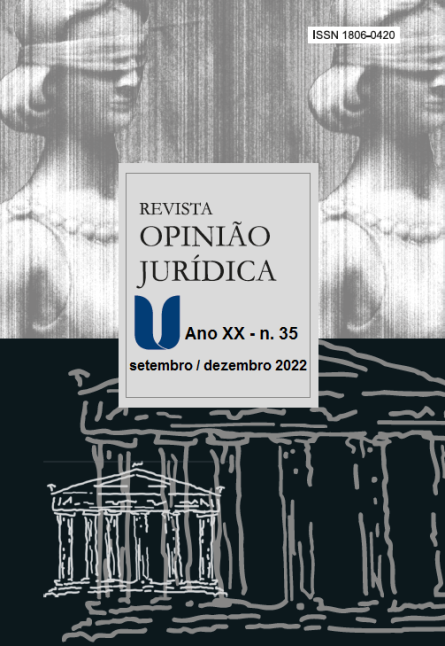THE ANTI-DISCRIMINATION CASE MANAGEMENT IN THE CIVIL PROCEDURE LAW AND INDIGENOUS PEOPLES
DOI:
https://doi.org/10.12662/2447-6641oj.v20i35.p61-82.2022Keywords:
anti-discrimination, indigenous peoples, case managementAbstract
Objective: The purpose of this article is to investigate the existence of anti-discrimination duties in the case management involving indigenous peoples, based on the Code of Civil Procedure. Therefore, the hypothesis presented is that, in addition to the substantive law rules, procedural rules must also respect anti-discrimination duties.
Methodology: As a methodology, a qualitative approach is adopted, through a review of specialized literature and legislation.
Results: It’s concluded that Brazilian civil procedural law, by adopting the case management in cooperation with the parties, also adds anti-discrimination duties to the procedural norms, allowing the adaptation of the process to the specificities of indigenous peoples, expressing the commandment of equality provided for in the Constitution and emphasizing ethnic discrimination as a prohibited criterion of anti-discrimination law.
Contributions: The article contributes to the reflection that anti-discrimination duties, in addition to material norms, also reach the procedural norm and that case management (intra-procedural) is an important instrument to guarantee procedural equality for indigenous peoples.
Published
How to Cite
Issue
Section
License
CESSION OF COPYRIGHTS
The submission of articles to analysis for publication on Opinião Jurídica implies the author(s) transfers copyrights to Centro Universitário Christus – UNICHRISTUS for reproduction, publicizing, distribution, printing and publication, according to the Publication Norm 414R, Opin. Jur., Fortaleza, year 12, n. 16, p.1-414, Jan./Dec. 2014, costs to be bore by UNICHRISTUS, in whatever format or means that may or shall exist, in accordance to articles 49 and following of Federal Law 9.610/98.
1. In ceding copyrights, the author(s) agrees to do so in exclusivity, free of charge and for the totality of the work.
2. UNICHRISTUS may make the work, in its entirety or in parts, available for scholarly purposes, without altering its contents, except for small corrections that are deemed necessary.
3. The cession of copyrights is valid in all countries and for versions of the material in its original language or translated into a foreign language.
RESPONSIBILITY FOR THE CONTENT
By submitting an article, the author(s) declare to have sole responsibility for the content of the piece and is(are), therefore, responsible for any judicial or extrajudicial measures referring to it.
1. In case of joint authorship, all authors are considered collectively responsible, except when proved otherwise.


















